WeChat, the national super software considered to be “the most Buddhist and updated”, has been getting busier and busier recently.
On October 8, the native version of WeChat Hongmeng officially began to invite internal testing. Although this native version of Hongmeng only provides the most basic chat, friend circle, and payment functions, it still completes the most important part of the software ecosystem for Hongmeng. But what’s interesting is that shortly after the announcement of the native version of Hongmeng, WeChat received another unexpected feature update that attracted everyone’s attention.
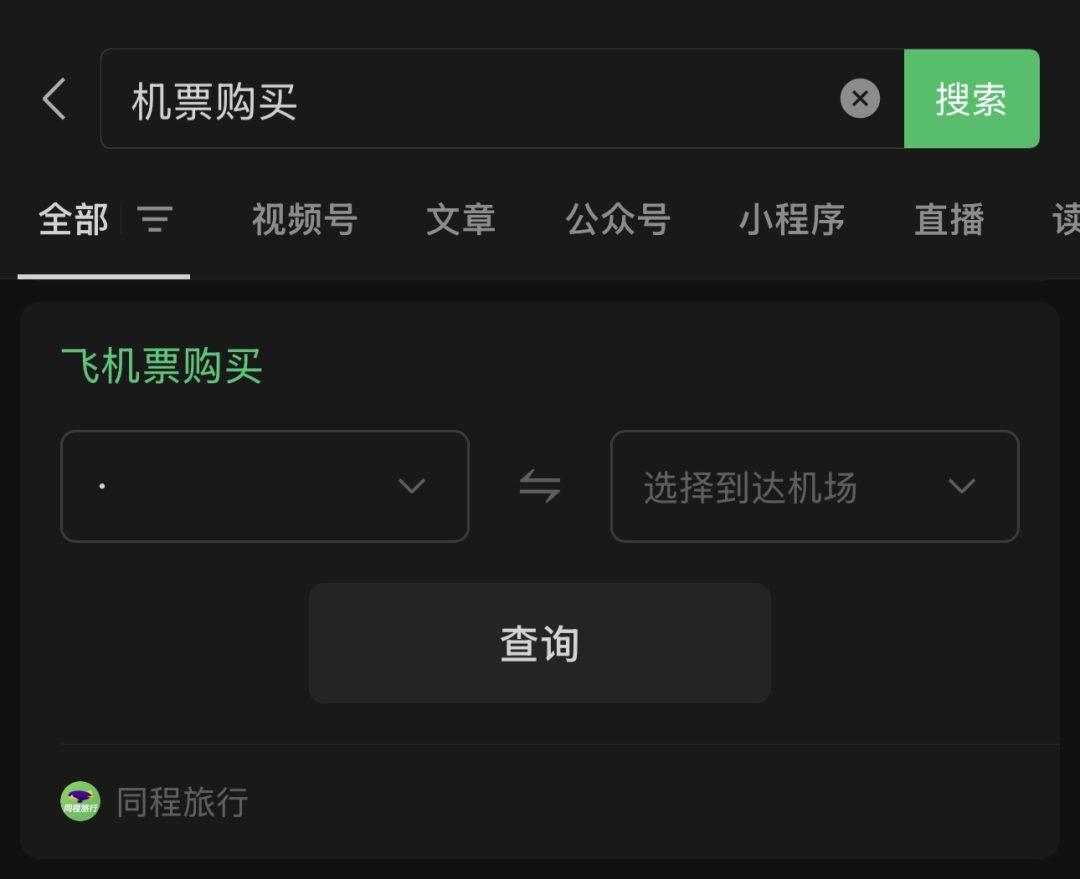
Image source: Lei Technology
Simply put, "Search Direct" allows users to jump directly from search results to the corresponding functional interface. According to WeChat, “Search Direct” already covers most high-frequency functions. To be honest, based on Xiao Lei's personal opinion, I really can't imagine that we have to wait for 13 years before we have a useful "search direct". This also shows the fact that WeChat is a "slow product".
"Search" is the starting point of "WeChat AI"?
Looking back at WeChat’s recent function updates, it is not difficult to find that WeChat has regarded the search function as its next main battlefield. In mid-2024, WeChat will add an AI Q&A function to grayscale searches: in addition to regular search results, WeChat will display AI-generated answers at the top of the results page.
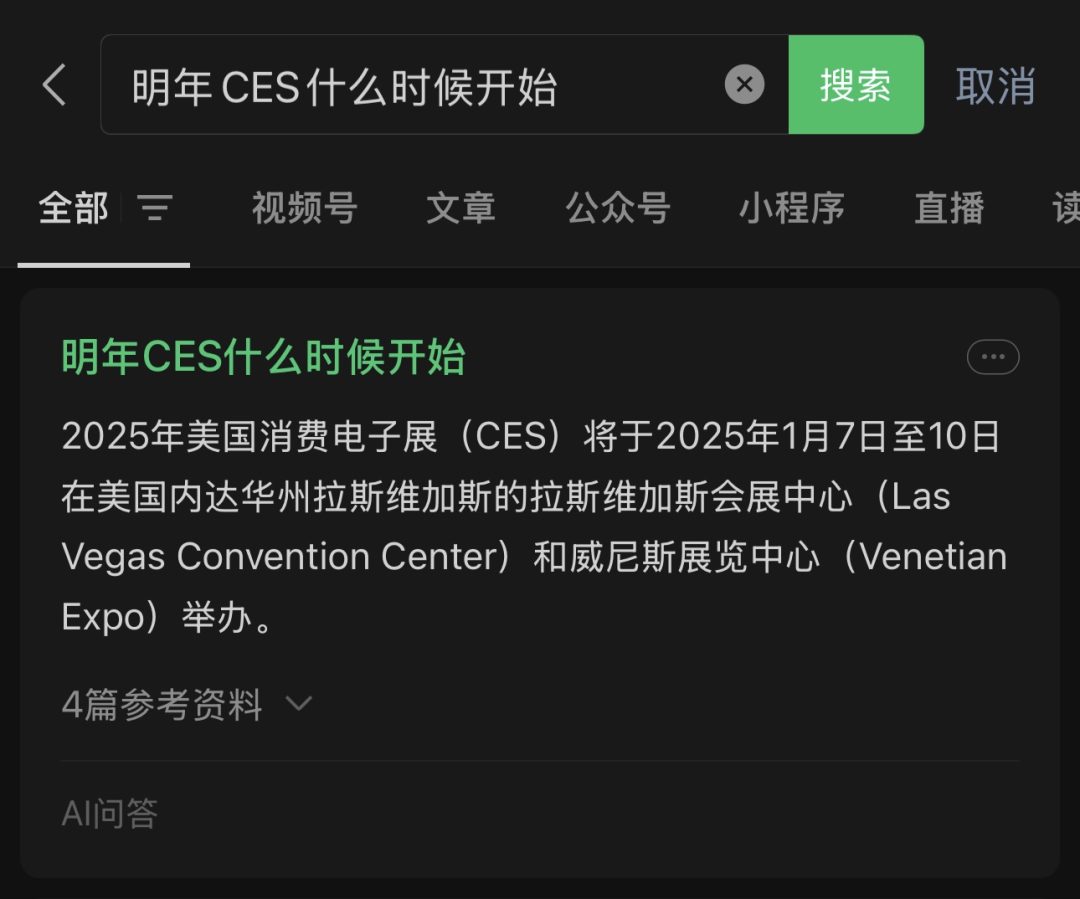
Image source: Lei Technology
Related to Tencent’s internal product layout, it is not difficult to see that WeChat’s AI function relies on the capabilities of Tencent’s Hunyuan model. In an interview, Liu Yuhong, the person in charge of the Hunyuan model, once said:
Currently, nearly 700 businesses within Tencent are connected to Hunyuan.
Basically all Tencent (businesses) use it.
In my opinion, this is also a signal for WeChat to further expand its search function. By introducing AI technology, WeChat is no longer satisfied with providing conventional search results, but uses AI to create a direct search experience. This not only improves the accuracy and efficiency of search, but also opens up WeChat's layout in the field of AI search.
The purpose behind this actually indicates that it is a "second portal" besides building a small program. Since its launch, mini programs have been the core of WeChat's connection between users and services, but they still require users to actively enter specific program operations. AI search can directly provide users with solutions through intelligent recommendations and automatic answer generation without the need for multiple jumps. This seamless service experience makes AI search another major "entrance" to WeChat's service ecosystem after mini programs.
However, with the evolution of Tencent’s Hunyuan large model technology, the potential of WeChat search goes far beyond this. WeChat can use AI to analyze a large number of user behaviors and search content within the WeChat ecosystem, further personalize recommendations, and even predict user needs in advance before searching. This transformation from passive search to active recommendation marks that WeChat is building a more intelligent search system. This system is an important part of WeChat's transformation from a super application to a super intelligent assistant.
WeChat’s AI landscape is quietly unfolding
In fact, many overseas social media platforms have begun to use user data to train AI to improve the experience of AI services. Take Meta, which is the closest to WeChat's "super application" status among overseas social platforms, as an example. Meta has been investing a lot of resources in the field of AI and actively promoting the application of its technology in social networking and content generation - Meta's AIGC tool will be released in 2023 , but as early as 2013, Meta’s predecessor, Facebook, had already invested large-scale research resources in the field of AI.
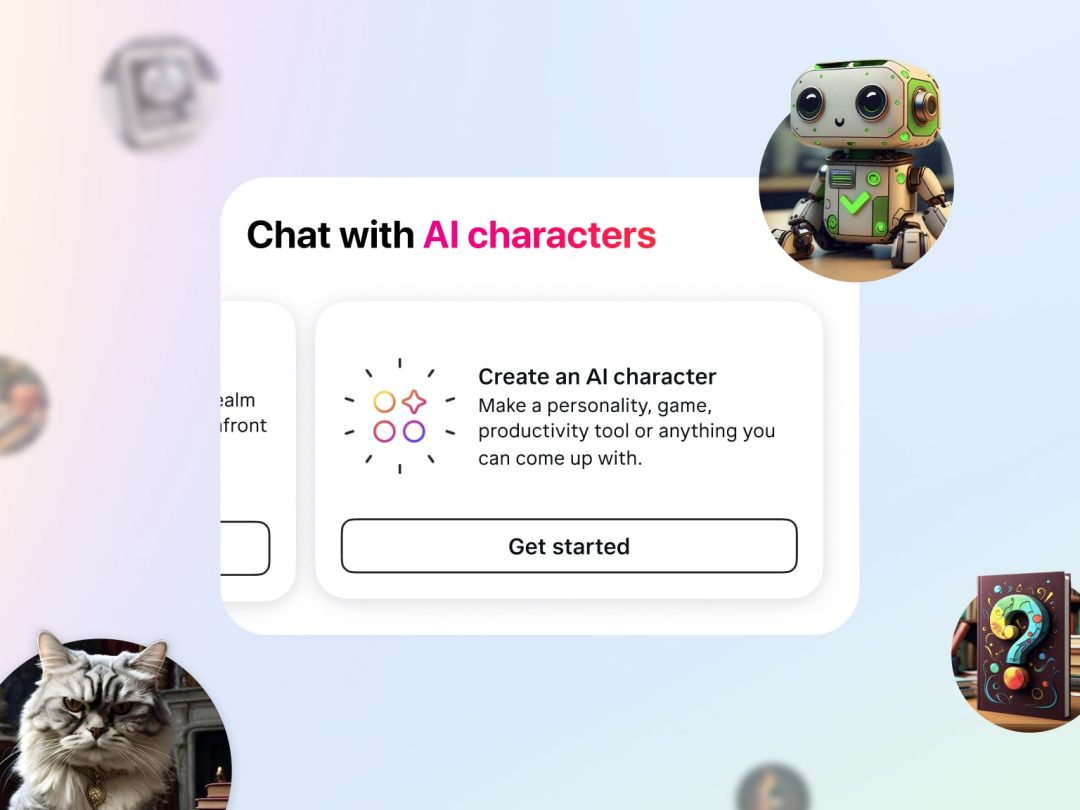
Image source: Meta
Meta's investment has yielded quite outstanding results: on Facebook and Instagram, users can follow the trend guidance given by Meta AI tools to create relevant content, and reach more users under Meta's AI recommendation algorithm. This "AI assistance" not only improves users' creative efficiency, but also increases user stickiness on the platform. On Instagram, many users even only upload content created using AI technology.
The same thing happened on Douyin platform. In the social media industry, Douyin has long been known for its intelligent recommendation algorithm. Through AI technology, Douyin can accurately analyze users' viewing behavior and push video content that best suits users' preferences. This recommendation system based on big data and AI algorithms allows users to access the content they are interested in in the shortest possible time, and "locks" users into the circle of the AI recommendation algorithm, greatly improving the user's stay time. and frequency of use.
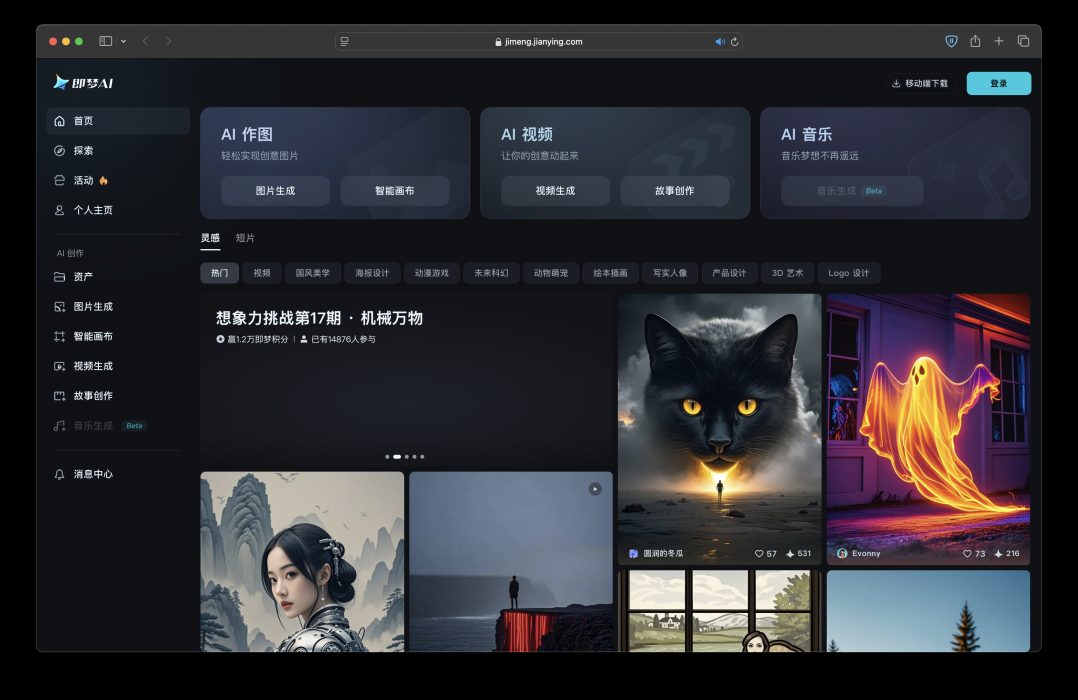
Image source: Cutting
In terms of content generation, Douyin is also at the forefront of the industry. With the help of AI, Douyin provides content creators with a large number of intelligent tools. When it comes to Douyin’s AI creation tools, we have to mention editing. With its powerful AI technology, Jianying greatly simplifies the video creation process. Through functions such as intelligent editing, automatic music matching, and automatic subtitle generation, even users without professional experience can easily produce high-quality videos, lowering the threshold for video production.
In contrast, WeChat’s attitude towards AI is obviously more conservative. Although WeChat is also gradually launching AI functions, such as AI search and Tencent Hunyuan Assistant applet, these functions are mainly focused on improving the convenience of users' lives rather than completely changing the mode of content production or social interaction. Of course, there are now many WeChat public accounts that have fully enabled AI writing mode.
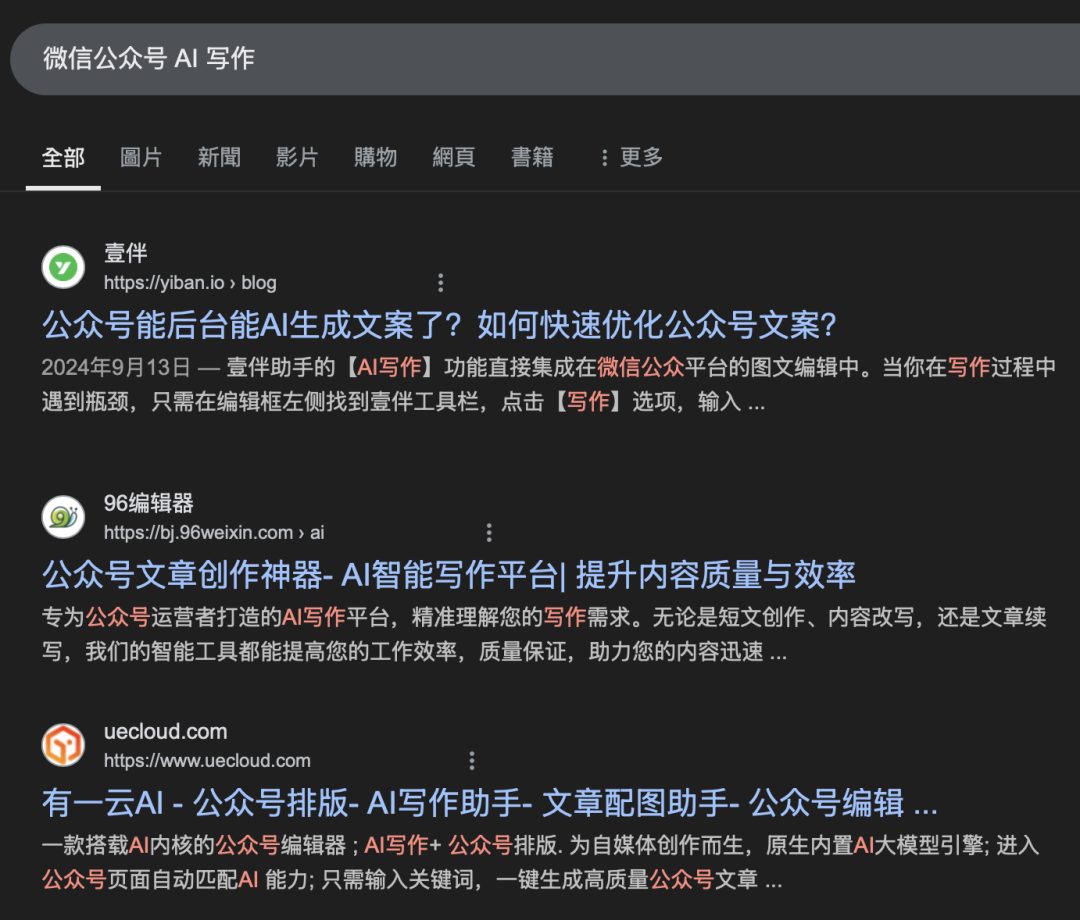
Image source: Lei Technology
But for WeChat, instead of blindly advancing in the AIGC era, it is better to use AI to improve the stability of functions and the balance of user experience, so as to avoid users' resentment due to the proliferation of AIGC. In terms of maintaining user experience consistency, WeChat’s approach is obviously better.
Is “AI WeChat” Tencent’s next big thing?
Looking to the future, WeChat will continue to delve into the field of AI. WeChat has a huge user base and rich ecosystem, which are its unique advantages in the AI era. With the support of Tencent's Hunyuan large model, WeChat is fully capable of integrating AI technology into more scenarios and providing users with more convenient services. Here Xiaolei gives you a few examples:
WeChat with AI added can provide more considerate automatic reply options based on context and user habits; public accounts can quickly and efficiently solve user problems; even in Moments editing, AI can help you automatically retouch photos, generate copy, and improve publishing efficiency.
The addition of these functions will completely change the usage logic of WeChat.
In addition, the social attributes of WeChat also provide broad space for the application of AI technology. By analyzing users' interests and social behaviors, WeChat can provide more accurate content push and service recommendations, which not only improves user experience, but also creates new opportunities for mini program developers and merchants.
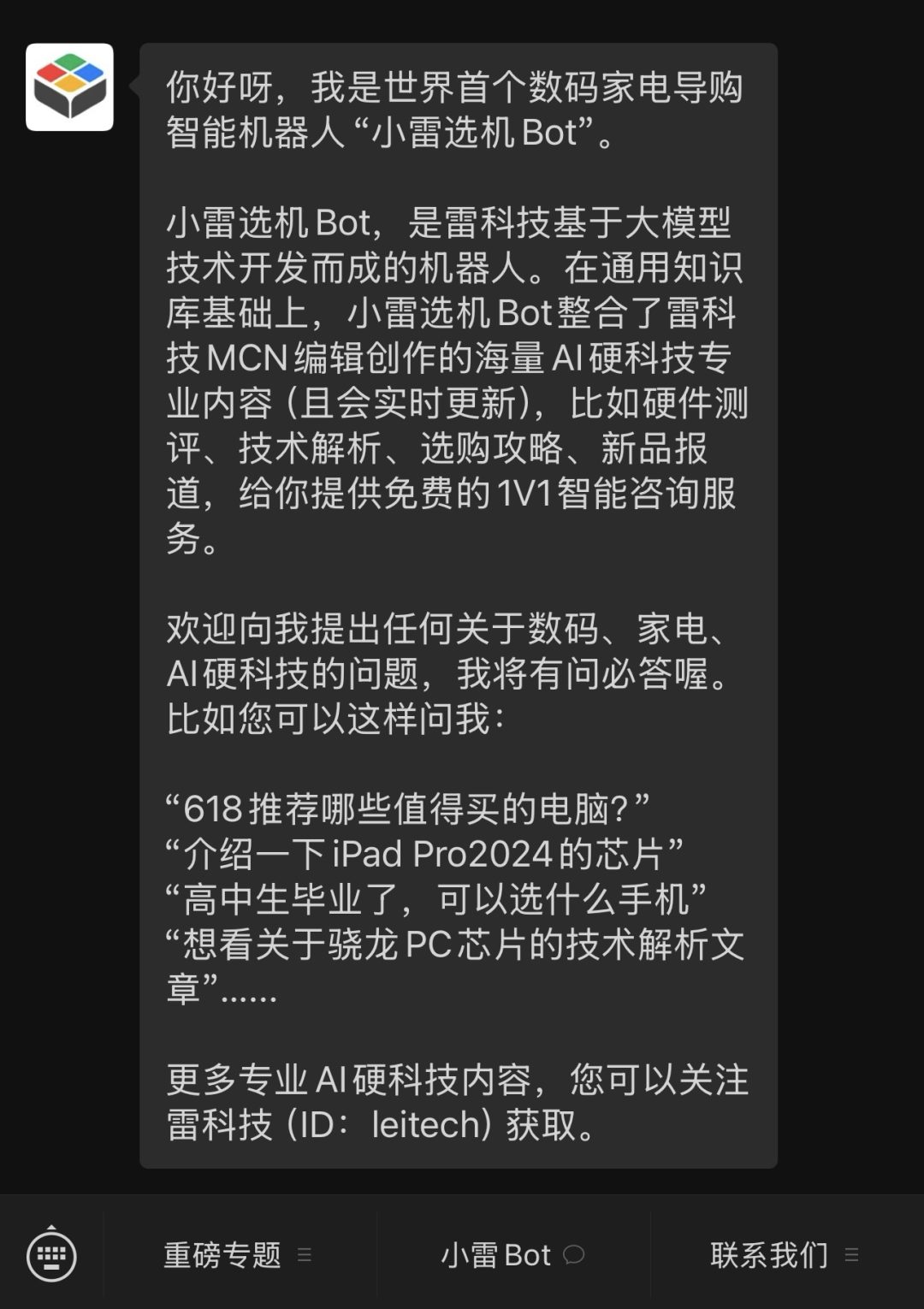
Image source: Lei Technology
Of course, WeChat also faces challenges on the road to AI development. How to make the most of data while protecting user privacy? How to avoid over-reliance on AI that complicates user experience? For WeChat, which is actively promoting overseas payment scenarios, these are issues that need to be carefully considered.
Although WeChat's AI pace seems slower than other platforms, this may be its advantage. In the fierce market competition, WeChat, which is moving steadily forward, can also achieve greater breakthroughs in the future and bring new possibilities to our digital life.
To put it another way, as long as AI WeChat knows that a certain file will be used later and will not actively clean up "expired files", that is good enough for WeChat's 1.37 billion users.